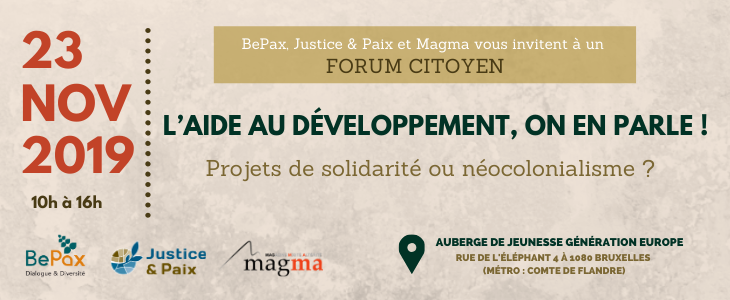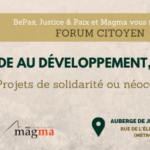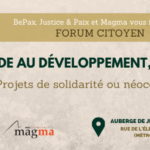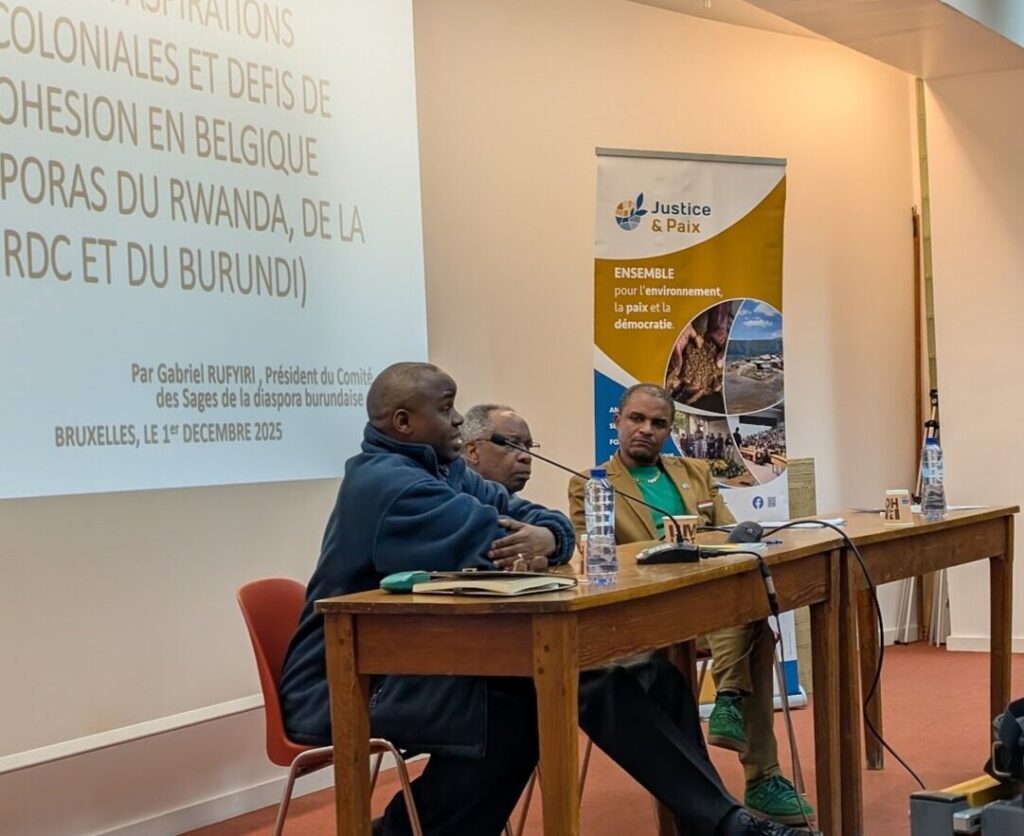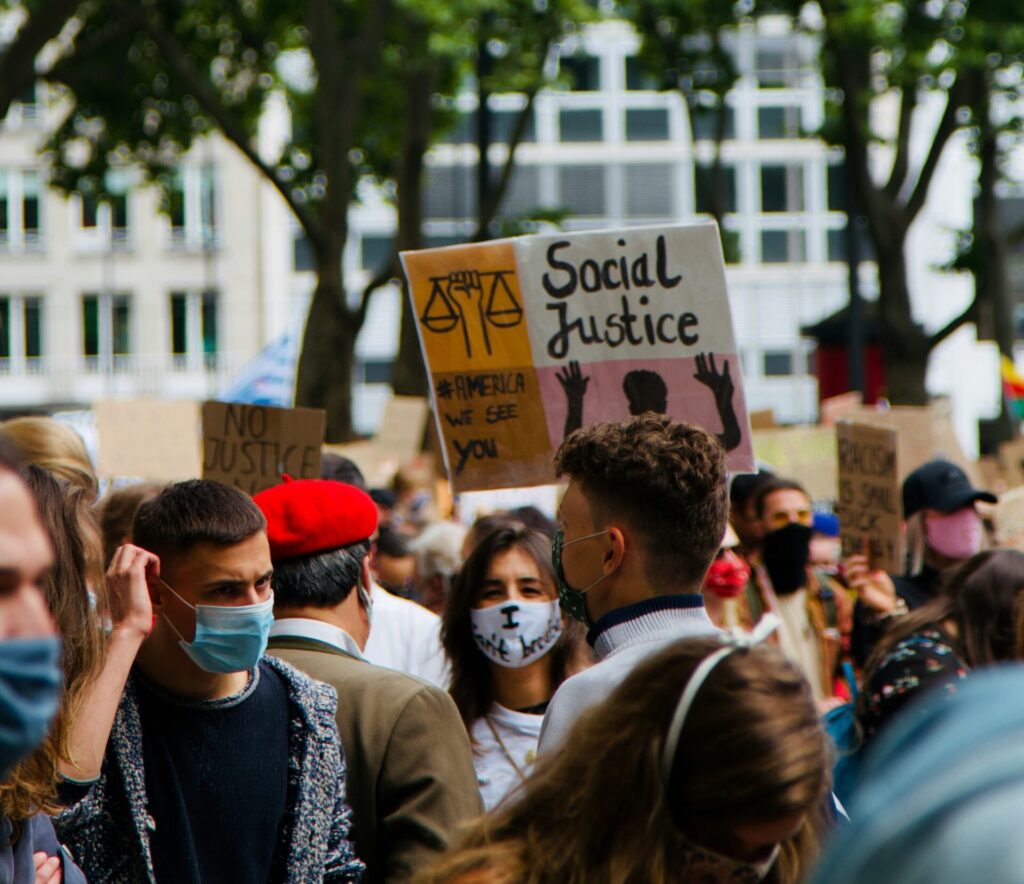Do you want to “save the world”, make a donation for development projects, or go as part of a humanitarian project? Yes, but what if we took the time to question these practices before leaving? Development aid often conveys the image of selfless solidarity between Northern countries and Southern countries.

But what place is reserved for local actors? And what image of the “Other” in relations between countries or between civil societies? Don't we sometimes find old reflexes of colonizers?
If certain projects are designed with an ideal of real solidarity cooperation, others reproduce a “civilizing” or “paternalistic” relationship reminiscent of the dark pages of the colonial era.
Through 4 workshops, Justice & Peace, BePax and Magma invite you for a day to question development aid practices, in order to redraw the contours of more inclusive international solidarity.
Program – Saturday 11/23/2019
- 10:00 a.m. Welcome & Introductory speech
- 11:00 a.m. First series of workshops
- 12:30 p.m. Friendly lunch
- 1:45 p.m. Second series of workshops
- 3:15 p.m. Collective sharing
- 4:00 p.m. Closing of the day
**Workshop 1: Defense of human rights: what cooperation between the North and the South?
Beyond financing issues, development cooperation also involves civil society organizations based “in the north” or “in the south” which work on a daily basis. But what is the role of civil society ? What relations between different civil societies? How does this partnership materialize, by what means and with what objectives (advocacy, awareness raising with ECMS stakeholders, etc.)? Finally, beyond the partnership relationships that are being forged between civil societies and NGOs around the world, it is also the question of the motivation of these organizations that arises: on what values are these partnerships based? In the name of what does a Belgian NGO work with an organization from Central Africa or Latin America? And where do we stand: should we talk about interference or international solidarity in the name of a shared humanity?
**Workshop 2: No to voluntourism
The volunteering offer is very diverse and it is increasingly difficult to navigate: private companies have entered this field at the associative base and offer “humanitarian trips” at exorbitant prices while making a business very lucrative. This commodification of volunteering is called “voluntourism” and often does more harm than good… The criticism of voluntourism targets sending organizations or rather commercial companies and not the volunteers. But young people are often carried by beautiful ideals, The question that every volunteer must ask themselves before choosing a project is: what do we do with it? What path do we take to go from the desire to help to societal change?
**Workshop 3: What colonial traces in the imagery of NGOs today?
To justify the Belgian colonial presence in Central Africa, intense propaganda flooded Belgian society with images and representations reflecting the inferiority of African populations. Today, these imaginaries against Afro-descendants are still very present in Belgian society and lead to significant violence and structural discrimination. There was no break between “yesterday” and “today”. On the contrary, we see a colonial continuum, visible in many areas of social life. Do we also find this continuum in development cooperation, and in particular in the iconography of NGOs? Why, how and with what consequences? To talk to us about it, we will welcome Djia Mambu, author, journalist, film critic and decolonial activist.
**Workshop 4: Development cooperation over time: from assistance to partnership
Development cooperation has evolved over time, both in its values and in its relationships with partner countries. This workshop will review the different models of development cooperation and their links with Western models of society over time. And ultimately to question the current model of development cooperation. Can we really talk about cooperation today? Does the “South” really need the North? What are the results of development cooperation after so many years?
Registration required via the following link: http://www.mag-ma.org/evenements/forum-citoyen-laide-au-developpement-on-en-parle/
